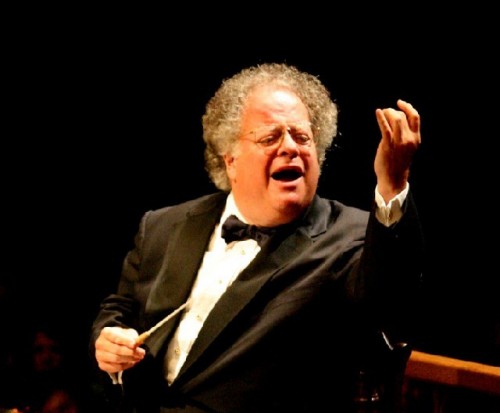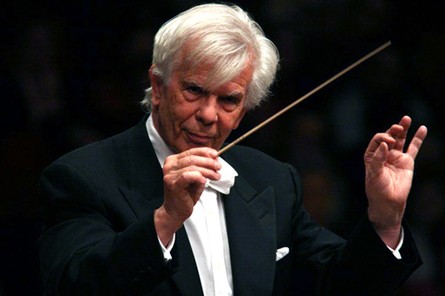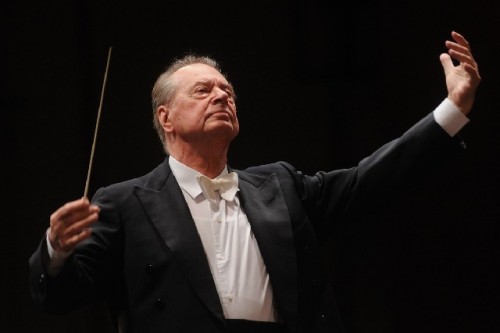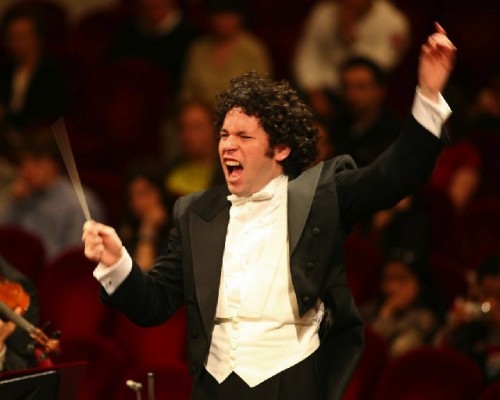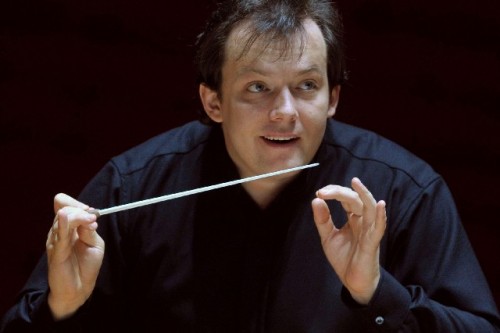Conductors; The Pharoahs of Music
Changing of the Guard for Orchestras
By: Stephen Dankner - Jul 14, 2014
Conductors – Maestros, as the conservative and elite musical world still anachronistically prefers to call them – are always in the spotlight, and during their often years-long tenure with their orchestra(s) (some lead more than one) are either able to remain welcome or sadly become unwelcome. An example: Due to James Levine’s travails because of persistent illnesses several years ago, he became a liability for the Metropolitan Opera and Boston Symphony, despite his great musical gifts. By contrast, the Los Angeles Philharmonic had good fortune in nabbing the talented young superstar Gustavo Dudamel in 2008. Levine, now confined to a wheelchair, has begun the long road back to conducting at the Met, but it’s unlikely, at 71, that he’ll regain his former energy and commanding presence in opera and symphony concerts.
Conductors do tend to have long lives, and many keep going into their 80s. Andre Previn is 85, Kurt Mazur is 86 and Christoph von Dohnanyi is 81, though of these, only Dohnanyi is still active. Maybe it’s the aerobic upper body arm-waving combined with the mental acuity they need as conductors, learning new scores and communicating with orchestral players, that keeps them going.
Three of their number have, however, recently passed: the legendary Lorin Maazel, 84 died July 13. He was former Artistic Director of the Deutsche Oper Berlin and General Manager of the Vienna State Opera; Music Director of the Radio Symphony of Berlin; the Symphony Orchestra of the Bavarian Radio; the Pittsburgh Symphony; the Cleveland Orchestra; the Munich Philharmonic and the New York Philharmonic.
Raphael Frübeck de Burgos, 80, who died on June 11, was Chief Conductor of the Danish National Symphony Orchestra as well as guest conductor with the New York and Los Angeles Philharmonic Orchestras, the Cleveland Orchestra and the Chicago, Cincinnati and Detroit Symphony Orchestras.
Claudio Abbado, the great Italian maestro, died on January 20, at 80. He was Music Director at La Scala Opera in Milan, and also led the London Symphony, the Vienna State Opera, the Berlin Philharmonic, and was the Principal Guest Conductor of the Chicago Symphony Orchestra.
Losing these three musical giants this year has led me to speculate on their legacy and if they can be replaced.
One way of imagining what the future may hold is to look back – to search for the traditions that these men have embodied.
I was reminded of two legendary conductors of generations past – Arturo Toscanini and Dimitri Mitropoulos. They were Maestros (an eminent master or teacher) when that honorific really meant something. Conductors come and go, but both Toscanini and Mitropoulos, it seems safe to say, will remain archetypes for the calling of conductor/music director as long as orchestral music is cared about, and greatness in conductorial leadership is required.
In comparing Toscanini with Mitropoulos, I recalled that in ancient Egypt, the God-pharaoh was often represented holding the shepherd’s crook in his right hand, representing the ruler’s loving concern for his people, and the flail in his left, symbolizing stern punishment. They were “pharaohs” of music - Toscanini, with his stern visage and fearsome outbursts, wielded his conductor’s flail, while Mitropoulos, a kindly, modest and generous soul, was the shepherd. His concern for his orchestra members and to musicians in need, to whom he gave away almost all of his earned income, was, to him, as important as the music he invited them to lovingly perform.
Toscanini was Music Director at the New York Philharmonic, where, from 1929-1936, he attracted an immense following. Before his tenure there, he was known primarily as an opera conductor, with close personal ties to the elder Verdi and the young Puccini. In New York, Toscanini’s focus shifted to the symphonic repertory, and he brought the mostly 19th century canon of classical orchestral masterworks to the masses via the ubiquitous medium of radio.
Dimitri Mitropoulos, the saint-like humanist/Maestro, viewed the performance of music as a sacred, spiritual act, and himself a “priest of music.” In his worldview, he sought to put himself in the subordinate role of communicant, bearing witness to the great truths of the music he conducted. In his youth he was torn between a career in music or becoming a monk. In this regard, author William Trotter, whose biography of Mitropolous “Priest of Music: the Life of Dmitri Mitropolous” (Amadeus Press, 1995,) writes of Mitropoulos’ spartan accommodations and demeanor, when the conductor was music director of the Minnesota Orchestra: “The furnishings were spare: bookcases, a few chairs, a studio bed, an upright piano… the bare essentials of kitchen ware – distinctly monk-like. The black turtleneck sweaters… the tonsured appearance of his formidable head… the large crucifix he always wore next to his heart… all contributed to the popular notion that Dimitri Mitropoulos actually was a monk, or at least a practicing mystic.”
Then there was Mitropoulos’ fabulous memory. He memorized scores completely, never using a score in rehearsal or even in a recording session!
Beloved by his Minnesota Orchestra players, he was later abused by some of the jaded, hardboiled New York Philharmonic musicians who would talk back to him and throw music at him in open rehearsals. Mitropoulos shrugged it off, not wanting to show anger or play the aggrieved martinet. When confronted by bad reviews or by players’ bullying, he always turned the other cheek.
Now, with the passing of Maazel, Abbado (pharaohs of the flail) and Frübeck (a shepherd by nature), the classical music world has lost three great musical intellects. Each carried the torch handed down from the likes of Mitropoulos and Toscanini.
Will the current generation of conductors be worthy successors? Preliminary judgments suggest that Los Angeles’ Gustavo Dudamel and the Boston Symphony’s Andris Nelsons, to name just two, have “the right stuff,” and will carry forth the traditions of excellence and visionary music making forward well into the 21st century; they are already standard bearers for budding conductors learning their craft at the Tanglewood Music Center and at conservatories throughout the world.
And the beat goes on…
Stephen Dankner lives in Williamstown. Send your comments to him at sdankner@earthlink.net, or visit his website stephendankner.com.

